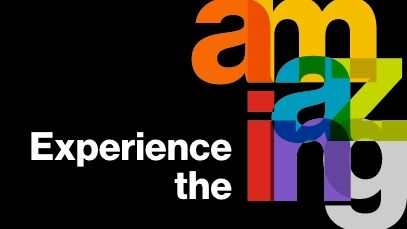Organizational Leadership and Innovation MS


Organizational Leadership and Innovation MS
- RIT/
- RIT Croatia/
- Programs/
- Organizational Leadership and Innovation MS
Success in today's global economy requires organizations to have visionary leadership, a 360-degree view of customers, and the ability to formulate and execute strategic initiatives. Organizational Leadership & Innovation is a one-of-a-kind graduate MS program delivered by the Rochester Institute of Technology. It prepares professionals to transform their organizations by using innovation to drive measurable outcomes. RIT's MS graduates anticipate the future and see opportunities to position their organizations—and themselves—to reach new levels of success in a constantly changing world.
Overview
he curriculum and study plan are designed to uphold RIT's renowned standards of excellence in education. Classes combine both online and in-classroom sessions. The program is designed for a broad array of professionals who aim to acquire advanced knowledge and skills in leadership.
During their studies, students gain an in-depth knowledge of different aspects of management, such as organizational structures, organizational leadership, data mining, project management, and innovation.
Transformation through Leadership
The program allows those who work in any industry to transform their organization through novel ways of thinking, problem-solving, and projecting the future. The program's unique focus enables students to:
- Develop strategic leadership attributes to advance innovation and growth
- Promote the creation of innovation in self and those they lead
- Map, measure, and analyze data
- Design customer-centric systems
Upon completion of their studies, students obtain an internationally recognized American degree – a Master of Science in Organizational Leadership and Innovation – awarded by the Rochester Institute of Technology. Its reputation as one of the world’s top universities has been acknowledged by many leading college guides, industry, and internationally respected publications. Read more about RIT's rankings and recognitions
Program Director Malarvizhi Hirudayaraj discusses the Organizational Leadership and Innovation program
Master's Degree Specifics
- 19-20 months
- 10 courses
- Major research project/thesis
- Blended curriculum (onsite and online)*
- Onsite classes take place in the afternoon hours (5PM) – adjusted to working professionals
- 30 hours instruction/course
- 30 credit hours earned towards the degree
- American Diploma – Master of Science in Organizational Leadership and Innovation, awarded by Rochester Institute of Technology
Curriculum
The rapid pace of progress in technology and the change in demographics of the workforce are anticipated to affect what work will look like in the future, in addition to the structure and nature of work itself. Some of these changes might be incremental and others more radical and disruptive affecting the conduct of business. The pace, nature, and magnitude of these changes demand that businesses, organizations, educators, policy makers, leaders, managers, and individual employees reimagine models of employment including the organization and functioning of the workforce. This course is intended to provide students with a global perspective of the future of work and employment, and insights into the implications on their designated professions and careers. Among others, this course will address the following questions: What are the skills and competencies required of the workforce for this new future of work? What skills, competencies, and job roles may become redundant? How should corporations preempt and prepare to deal with these changes? What will be the role of leaders and managers in reimagining and developing the workforce of the future?
Major change initiatives within organizations fail because of a lack of understanding of the process of change and the lack of deliberate and focused attention to the change process. This course teaches students the change process and the alterations required in structures, processes, and activities to effectively implement change initiatives within organizations. The components of this course include applied approaches and tools to help analyze barriers to change, leverage power, and influence, and provide frameworks to plan and implement change.
This course examines why people behave as they do in organizations and what managers can do to improve organizational performance by influencing people's behavior. Students will learn a number of frameworks for diagnosing and dealing with managerial challenges dynamics at the individual, group, and organizational level. Topics include leadership, motivation, team building, conflict, organizational change, cultures, decision-making, and ethical leadership.
The use of creative problem solving to discover new alternatives in the design of products and services is the essence of design thinking. The innovation design thinking process seeks creative inspiration to solve a problem, generating and selecting ideas to develop a path from design to market. Design thinking tools and strategies are discussed as are “Wicked Problems” and the impact design thinking can have on developing a solution for these problems. An in-depth approach uses stories and prototypes to design products/ services in an effort to solve problems in an innovative and sustainable manner.
This is an introductory graduate-level survey course on research design/methods and analysis. The course provides a broad overview of the process and practices of research in applied contexts. Content includes principles and techniques of research design, sampling, data collection, and analysis including the nature of evidence, types of research, defining research questions, sampling techniques, data collection, data analysis, issues concerning human subjects and research ethics, and challenges associated with conducting research in real-world contexts. The analysis component of the course provides an understanding of statistical methodology used to collect and interpret data found in research as well as how to read and interpret data collection instruments.
Achieving competitive advantage in today’s world demands that organizations know how to innovate, and do so not once, but repeatedly. Creativity, rapid learning through continuous improvement, and the ability to turn ideas into action, products, processes and services are crucial. How do leaders foster and sustain a culture of innovation? What unique competencies and skills do you need as a leader and what skills do your teams need? How is managing an innovation team different than managing other kinds of teams within an organization? Through this course, service leadership students will leverage and build on their growing knowledge about innovation, the individual and group skills required for innovating gained in SERQ-712. Students will gain deeper insights into innovation leadership requirements for creating, managing and curating a thriving environment in which cutting edge ideas are encouraged, born and grown. Open to students in the service leadership and innovation MS program and non-majors on a space available basis with department permission.
To gather and analyze public/private service sector information to inform decisions is the goal of every public/private sector administration. Data can drive success of governments and organizations or lead to their downfall. This course will explore data mining used in the public/private sector, how to gather it and utilize the results of the data collections to inform decisions that reflect the needs and desires of the stakeholders in this sector.
This course introduces the concepts, principles, and practices necessary to lead into the future and avoid organizational mis-steps by taking an action-oriented approach to planning, implementing, evaluating, and revising competitive strategy in service firms. The course will address basic concepts and principles of competitive strategy, the process of developing and implementing strategy in organizations, the development of robust, future-oriented strategies using learning scenarios, strategy mapping, and tools for strategy evaluation such as performance metrics, scorecards, and dashboards.
Managing public and private sector projects is a complex, demanding process involving ethical considerations, leadership, the ability to understand complex rules and regulations, the politics of the administration, and the vagaries of the budget process. This conceptual framework will address planning, selection of team members, contracts and agreements, monitoring and adjusting the project progress, and completion of the project through turnkey stages. The end result of this process is to contribute to the establishment of trust of the stakeholders, minimize failure, and maximize success.
The purpose of this course is to provide students the opportunity to conduct research, develop a plan and evaluation components and submit the project as a demonstration of final proficiency in the program. The topic selected by the student will be guided by the faculty teaching the class and it will require the student to coalesce and incorporate into the final project a culmination of all their course work in the program to date.
Admission Requirements
To be considered for admission to the MS program in Service Leadership and Innovation, candidates must fulfill the requirements stated by the Graduate Admission process. Proficient knowledge of English is required.
For additional information about MS program please contact our Graduate Admissions Office:
T. + 385 (0)1 643 9100
E-mail: ms@croatia.rit.edu






